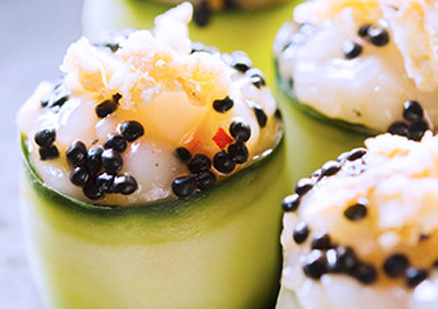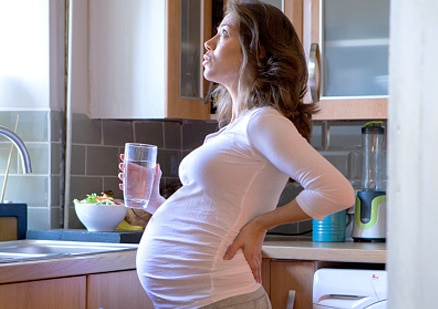What to eat — and not eat — when you’re pregnant

Right now, you share everything you eat or drink with your developing baby. Knowing what to eat and what to avoid can help you fill your plate with safe and healthy foods that give your little one a healthy start.
DO get the nutrients your growing baby needs
Parents-to-be need extra calcium, iron, and folate (also called folic acid). Here’s what your body needs each day:
Calcium-rich foods — 1,200 milligrams of calcium per day
Your baby relies on the calcium you eat to develop their bones. If you don’t get enough, your body will use calcium from your bones to nourish your baby — which can lead to osteoporosis (weak bones) later in life. Try these healthy sources of calcium:
- Low-fat or nonfat milk products
- Almonds
- Spinach, kale, collards, bok choy, broccoli, and other dark-green vegetables
- Fortified cereals or oatmeal
- Corn tortillas
Folate-rich foods — 0.6 milligrams of folate per day
Getting enough folate before and during pregnancy reduces your baby’s risk for certain birth defects of the brain and spinal cord. Try these healthy sources of folate:
- Dark-green, leafy vegetables, like kale, Swiss chard, collard greens, broccoli, and spinach
- Beans, chickpeas, and lentils
- Cantaloupe, honeydew, and oranges
- Peanuts and almonds
- Folate-fortified breads and breakfast cereals
Iron-rich foods — 30 to 60 milligrams of iron per day
Getting enough iron prevents anemia, which is linked to preterm birth and low birth weight. To help your body absorb iron better, combine it with foods high in vitamin C, like oranges, broccoli, or strawberries. Try these healthy sources of iron:
- Lean beef, lean pork, chicken, and turkey
- Eggs
- Spinach, kale, collards, bok choy, broccoli, and other dark leafy green vegetables
- Pumpkin seeds and walnuts
- Lentils and other beans
DON’T eat these foods while you’re pregnant
Most foods are safe to eat when you’re expecting, but certain things could harm your developing baby. Follow these safety guidelines, and talk to us if you have any questions:
- Raw or undercooked meat, chicken, or fish
- Raw or lightly cooked eggs (soft-scrambled eggs, Caesar dressing, hollandaise sauce, cookie dough)
- Soft, unpasteurized cheeses
- Raw, unpasteurized milk
- Cured meats with added nitrites or nitrates (cold cuts, hot dogs, and sausages)
- Seafood that may have high levels of mercury (large fish, like shark, swordfish, tuna, king mackerel, sea bass, halibut, and tilefish)
- Raw sprouts, especially alfalfa


